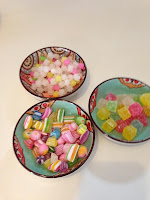 |
| ¥280 - what I had in my pocket all day today. About $2.90 |
There's a phrase in Japanese culture for describing the condition of having just moved into a new apartment or home. This phrase is "Hikkoshi Bimbou" (引っ越し貧乏) which means "impoverished because of moving." After reviewing the contract documentation from our apartment rental agent and paying the final amount due, I have come to understand what this means as the bottom line was a bit shocking. Furthermore, this is further amplified for someone who has just moved into the country. So why is this? Why is moving so expensive that this phrase has made its way into the common vernacular? Well, let's take a look!
When moving into a rental apartment, these are the typical expenses that a new tenant faces.
- Security Deposit (敷金 Shikikin) - usually 2 months' rent
- Advance Rent (前家賃 Mae yachin) - pay the rent first, then move in
- Fire Insurance (火災保険 Kassai hoken) - this doesn't really cost THAT much, a couple hundred USD or less
- Gratitude Money, which is sometimes referred to as "key money" by foreigners in Japan (礼金 Reikin) - the word 'rei' literally means thanks or gratitude. This is an unfortunate tradition that has its roots in post World War 2 Japan when housing was scarce, and people gave money to the property owner as a sign of gratitude for being given the opportunity to live there. More than half a century later, when empty apartments outnumber prospective tenants, this is custom that probably should (but is unlikely to) be forgotten. Gratitude money can sometimes be as high as one month's rent, and is a non-refundable "gift" to the owner. There's pretty much no getting out of this.
- Rental agent fees (仲介手数料 Chūkai tesūryō) - this is not so unaffordable, but "everything adds up" as they say. In Tokyo, one does not just go walking around looking for signs that say "For Rent." It's just not way it's done here. Prospective tenants all work with an agency, so it's just another one of those things that is to be expected. There is a positive side to this, which is that the agent does all the work for you, acts as a liaison between the owner and the renter and, as goes without saying in Japan, provides top rate customer service.
- Refrigerator (冷蔵庫 Reizōko) - this will probably come as a surprise to my friends and family from the Chicago area, but apartments in Tokyo do not come with a refrigerator included; tenants must bring their own. This is probably not that big of a deal for someone who is moving from one apartment to another since they will just move their fridge along with the rest of their things. My wife and I do not own a refrigerator, however, so we will very soon go out shopping for one.
When all is said and done, moving to a new apartment costs about 1/2 year's worth of rent all at once. So, therefore, Hikkoshi Bimbou is exactly what my wife and I are experiencing right now.





